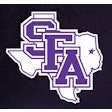![[Photo left courtesy of Twitter @Arachgall Photo right courtesy of YouTube]](https://img.athleticbusiness.com/files/base/abmedia/all/image/2019/05/ab.Legal519_feat.png?auto=format%2Ccompress&q=70&w=400)
State athletics associations often make decisions regarding the eligibility of student-athletes at member institutions, and their power to do so is nearly absolute. Courts rarely interfere in the business of these independent entities, but it can happen. Such was the case in Davenport v Savares, Complaint for Temporary and Permanent Injunction and Emergency Motion for Temporary Restraining Order, Case No: CV 19-2 (Circ. Ct. Pike County, Jan. 10, 2019).
Maori Davenport was a basketball player at Charles Henderson High School in Troy, Ala. Committed to attend Rutgers, Davenport was ranked 15th among the top 100 recruits in the country by ESPN. She was also on the team that won the FIBA Under-18 Women's Basketball Championship in Mexico City last summer.
USA Basketball issues participants stipends as reimbursement for travel and incidentals. Although this process complies with NCAA rules and does not impact an athlete's future eligibility, USA Basketball is supposed to contact the respective state high school associations to ensure that the payment does not affect high school eligibility.
Without checking with the Alabama High School Athletic Association, USA Basketball sent Davenport a check for $857.20. She cashed the check, and three months later USA Basketball informed her of its mistake. Davenport's family reimbursed the money and self-reported the issue to the AHSAA, but she was suspended for violating the association's amateur rule.
Amateurism in athletics
Although much of the discussion on amateurism these days surrounds collegiate athletics, high school athletics has a longer history requiring participants to be amateurs.
Each state association requires that participants remain amateurs playing sports for their intrinsic value and not for pay. For example, the Wisconsin Interscholastic Athletic Association's Senior Handbook, Article IV lays out the requirement for amateur status, including that an athlete will not be an amateur if he or she "accepts, receives and/or directs to another, reimbursement or award in any form of (a) salary, (b) cash, or (c) share of game or season proceeds, for achievement in athletics." Although students may receive some reimbursement of expenses and awards, the total value cannot exceed $200.
The AHSAA has a similar rule in its bylaws under Section 8: Amateur Rule, which provides, "Only amateurs are eligible. An amateur is one who does not use his/her knowledge of athletics or athletic skill for gain." The bylaws go on to state, "A student cannot accept payment for loss of time or wages while participating in athletics as part of expenses." By accepting the money from USA Basketball, Davenport violated this rule.
Davenport and her school immediately appealed her suspension, but it was upheld unanimously by the AHSAA's boards. This prompted her to sue, claiming that the amateur rule itself was arbitrary, as it did not allow an exception for USA Basketball's innocent mistake, and because she reimbursed the money. In Davenport v Savares, Davenport asked the court to stop the AHSAA from enforcing the rule and allow her to play.
On Jan. 11, the court granted Davenport's emergency motion, removing the suspension and allowing her to play, though not resolving whether the AHSAA could suspend her in the first place. A hearing on this issue planned for Feb. 22 never took place, as the case was voluntarily dismissed after Davenport played her final high school game.
![Top recruit Maori Davenport sued for the right to complete her senior season of girls’ basketball. [Photo courtesy of YouTube]](https://img.athleticbusiness.com/files/base/abmedia/all/image/2019/05/ab.Legal519a.png?auto=format%2Ccompress&fit=max&q=70&w=400) Top recruit Maori Davenport sued for the right to complete her senior season of girls’ basketball. [Photo courtesy of YouTube]
Top recruit Maori Davenport sued for the right to complete her senior season of girls’ basketball. [Photo courtesy of YouTube]
Judicial non-interference
Although many criticized the AHSAA's decision, state associations are given wide latitude to enforce their own rules, and courts rarely interfere in or overturn their decisions.
Perhaps the earliest case illustrating this principle was Morrison v. Roberts (1938 OK 458). In 1938, a student-athlete in Oklahoma was suspended for accepting a gold football award worth a few dollars. He appealed, but the Oklahoma High School Athletic Association Board of Control maintained that he should remain ineligible.
Like Davenport, the athlete contended that the punishment was arbitrary, as he gave back the award. The court pointed out that the schools all voluntarily agreed to the association rules, and agreed to comply with them, and therefore "courts should not interfere."
This non-interference rule is a bedrock principle of high school athletics. In general, "Courts should not meddle in these activities... especially when the parties have agreed to be bound by them and have availed themselves to the governance of these activities associations," as stated in Indep. Sch. Dist. No. I-89 of Oklahoma City Public Schools v. OSSAA, Order, Case No. CV-2014-2235 (D.C. Okl. Cty. Dec. 11, 2014). This non-interference rule stems from the principle that there "is no constitutionally protected right to play sports," according to Angstadt v. Midd-West Sch. Dist., 377 F.3d 338 (3rd Cir. 2004), no matter how important such participation is to the student-athlete involved, and therefore, no right is taken away from a student who is barred from playing.
As a result, most courts will only interfere in these decisions "to ascertain whether or not the proceeding was pursuant to the rules and laws of the society, whether or not the proceeding was in good faith, and whether or not there was anything in the proceeding in violation of the laws," as spelled out in State ex rel. OHSAA v. Judges (173 Ohio State 239, 1962).
Although AHSAA leadership has been criticized for suspending Davenport in the first place, there is little to show that the AHSAA acted arbitrarily. While some have provided examples of other associations that may have waived their rules in similar situations, such evidence shows no inconsistency by the AHSAA. Courts do not compare associations across state lines. Instead, they review the internal workings of the specific association itself to determine whether it has acted arbitrarily.
Perhaps most important, the first principle of the AHSAA is stated in Article II, Object 1, of its bylaws as "The object of this Association shall be to promote pure amateur athletic competition in the high schools of Alabama." Disciplining any student who violates this pure notion of amateurism is in line with this paramount concern.
Ignorance is no defense
As AHSAA Central Board of Control president Johnny Hardin stated in January, if the AHSAA had made an exception for Davenport, it would have made it possible for other student-athletes to accept payments, wait until they are caught, and then claim that they also did not know the rules. Although there is no evidence that Davenport attempted to circumvent the rules, her parents and coach should have been aware of the rules, and they, along with USA Basketball made a serious mistake that could have cost her the end of her high school basketball career.
Perhaps the AHSAA could modify its rules, or allow for exceptions in similar cases, but it is not the job of the judicial system to make these changes. Schools voluntarily join these associations and promise to abide by every association rule. Schools, parents and coaches must know these rules and do a better job of protecting student-athletes like Maori Davenport who could run into similar problems due to the mistakes of others.
This article originally appeared in the May 2019 issue of Athletic Business with the title "In rare instance, court interferes in state association decision." Athletic Business is a free magazine for professionals in the athletic, fitness and recreation industry. Click here to subscribe.




































